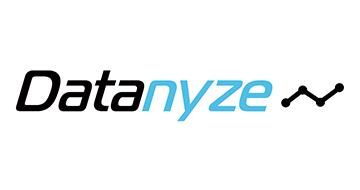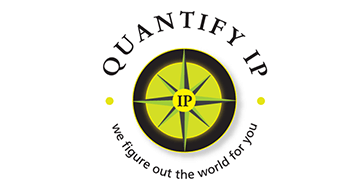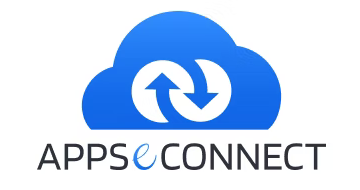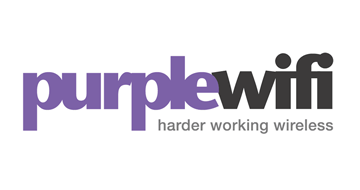
| Starting Price | $29/mo |
|---|---|
| Pricing Model | Subscriber based |
| Free Trial | Yes |
| Free Version | No |
Discover the best business intelligence software solutions to gain valuable insights and make data-driven decisions. With the right BI software, you can analyze complex data, identify trends and opportunities, and streamline your decision-making process. Our top picks represent the best value business intelligence software on the market.
Are you looking for the best business intelligence software to help your business succeed? Our experts have identified the best BI software solutions available today. Each of our top solutions has been highly rated for its functionality, ease of use and value for money.

| Starting Price | $29/mo |
|---|---|
| Pricing Model | Subscriber based |
| Free Trial | Yes |
| Free Version | No |

| Starting price | $1,999/yr |
|---|---|
| Free trial | No |
| Free version | No |

| Starting Price | $129/month |
|---|---|
| Pricing Model | Subscriber based |
| Free Trial | Yes |
| Free Version | No |

| Starting Price | Contact for price |
|---|---|
| Pricing Model | Quotation Based |
| Free Trial | No |
| Free Version | No |

| Starting Price | $ 28 /mo |
|---|---|
| Pricing Model | Per user, subscriber based |
| Free Trial | Yes |
| Free Version | No |

| Starting Price | Contact for price |
|---|---|
| Pricing Model | Subscriber based |
| Free Trial | No |
| Free Version | No |
Business intelligence (BI) software represents a comprehensive suite of business analytics solutions that enables companies to collect, analyze, and transform raw data into actionable visualizations including graphs, charts, and interactive dashboards. These sophisticated platforms combine business analytics, data mining, advanced data visualization capabilities, analytical tools, and robust infrastructure to empower organizations in making strategic, data-driven decisions that drive growth and operational efficiency.
Unlike competitive intelligence solutions that focus on external market data, BI software specifically draws from internal organizational data to create detailed analytics platforms. This approach constructs a comprehensive understanding of internal business operations, performance metrics, and operational workflows.
Companies seeking the optimal BI solution can explore our curated selection of best value business intelligence analytics software where our expert analysis simplifies the selection process.
Data analysis and comprehensive reporting demonstrate that big data serves as the cornerstone for enhanced business performance and sustainable success. However, raw data often presents interpretation challenges without proper analytical frameworks. New business owners particularly benefit from implementing robust business intelligence reporting systems early in their operational journey.
Successful BI reporting solutions integrate seamlessly into comprehensive business strategies across all industries, providing clear, understandable data insights and actionable feedback that drives strategic decision-making.
BI analytics reports enable organizations to analyze historical and real-time data streams, extracting meaningful insights that inform strategic future actions. These comprehensive analytics platforms accumulate diverse data sources while performing sophisticated analyses to identify emerging market trends, consumer behavior patterns, and operational inefficiencies.
Processed information gets compiled into intuitive visual formats including pie charts, detailed histograms, comprehensive tables, and interactive dashboards. Advanced visual forecasting models provide users with deeper understanding of complex business operations, while sophisticated reporting dashboard software enhances data presentation capabilities.
These advanced reporting solutions empower end-users to formulate rapid, beneficial decisions based on comprehensive customer purchasing patterns and detailed market trend analysis. Organizations can accurately forecast prospective revenue streams while implementing proactive protective measures against potential operational challenges.
Modern BI analytics software delivers transformative capabilities that drive organizational efficiency and streamline complex operations. Without comprehensive business intelligence frameworks, these preventive strategies and optimization opportunities remain inaccessible to most organizations.
Comprehensive Data Processing: BI software systems gather, analyze, and compile extensive business data at impressive processing speeds. These platforms seamlessly combine multiple data sources to utilizing advanced data preparation tools, integrate cloud-based software with existing business systems, and aggregate, standardize, and analyze complex data ecosystems.
Visual Data Transformation: Advanced BI analytics software transforms complex company data into accessible visualizations, including interactive dashboards, comprehensive graphs, and detailed analytical charts that facilitate quick decision-making processes.
Industry-Specific Operations: Specialized BI analytics tools perform customized operations aligned with specific business requirements, including comprehensive consumer purchasing data accumulation and detailed market trend analysis. This positioning enables accurate, evidence-based forecasting while protecting organizations from potential operational limitations.
Advanced Data Reporting: All organizational data gets captured, thoroughly explored, and transformed into understandable representations of business operations, positioning decision-makers to make informed, advantageous business decisions that accelerate entrepreneurial advancement.
Business intelligence analytics encompasses comprehensive processes and methodologies for collecting, storing, and analyzing data derived from business operations and activities. The primary objective focuses on enhancing overall business performance through data-driven insights. Modern BI analytics platforms provide comprehensive operational depictions, enabling strategic future course formulation.
Recent BI analytics developments include enhanced processes and activities designed to optimize performance across multiple organizational dimensions:
| Feature Category | Description | Business Impact |
| Statistical Analysis | Advanced descriptive analytics with deep statistical exploration | Understanding trends and causation patterns |
| Data Visualization | Interactive charts, graphs, and dashboard creation | Easier data consumption and interpretation |
| Advanced Querying | Complex question-based data extraction | Targeted insights from specific datasets |
| Collaborative Reporting | Stakeholder-focused analysis sharing | Informed strategic discussions and planning |
BI solutions represent strategic combinations of technology and methodology for collecting, analyzing, and interpreting data from internal and external sources. Results provide comprehensive information and analysis covering past performance, current operations, and future projections. These innovative analytics platforms deliver substantial organizational benefits:
Large-Scale Data Consolidation: Customer contact information, transaction records, and operational metrics get stored in centralized, queryable databases. Organizations can manipulate data through combinations, refinements, and single-metric consolidations, incorporating specific details like SKU numbers, salesperson performance, expiration dates, and purchase timestamps.
Consumer Insight Development: Enhanced demographic understanding, combined with simplified system architectures, ensures that comprehensive related information remains centrally accessible. Natural Language Processing (NLP) capabilities enable organizations to establish keyword tracking rules for business names, helping understand consumer language utilization patterns while measuring customer sentiment and purchasing trend analysis.
Performance Analysis: BI analytics examine Customer Relationship Management (CRM) data to reveal key performance indicators, organizational strengths, and operational limitations that require attention.
Real-Time Insights: Data visualization transforms complex information into immediate pictorial representations through graphs and charts, providing instant interpretation of critical metrics invisible within traditional spreadsheet formats.
Predictive Analytics: Current data serves as the foundation for predictive BI analytics, gauging future event likelihood and creating considerable competitive advantages. Advanced marketing analytics software integration enhances these predictive capabilities.
AI Integration: Predictive analytics provide detailed modeling capabilities incorporating artificial intelligence and machine learning to simulate historical occurrences and predict future consequences with enhanced accuracy.
Revenue Enhancement: Organizations improve price optimization and sales performance through comprehensive sales number analysis and consumer purchase trend evaluation. Supply chain metrics facilitate process optimization while business intelligence analytics contribute to service level agreement fulfillment and distribution route improvements.
Cost Reduction: Advanced data, reporting, and analytics software enables organizations to obtain, manage, and evaluate data efficiently, saving significant time and resources across operational departments.
Selecting optimal BI analytics tools requires careful consideration of organizational needs and requirements. Different business categories benefit from specific BI solution approaches:
Limited monetary resources make BI solutions particularly valuable for SMBs, enabling comprehensive analyses across multiple departments and roles rather than requiring specialized staff for analytical functions. BI solution tools facilitate seamless transitions from raw datasets to strategic decision-making, reducing operational costs through enhanced business process understanding.
Affordable BI analytics options have democratized access to enterprise-level analytical capabilities, leading increasing numbers of SMBs to invest in comprehensive BI analytical solutions that deliver measurable ROI.
Large organizations utilize BI analytics software for continuous data mining across diverse databases and applications. These comprehensive tools provide enhanced insights into sales performance, marketing effectiveness, financial operations, human resources optimization, and overall operational efficiency metrics.
BI software costs typically range from $10 per user monthly for basic solutions to tens of thousands annually for comprehensive enterprise implementations. Pricing factors include company size, analytical complexity, desired outcomes, and variable analysis requirements.
Multiple pricing models accommodate different organizational needs:
| Pricing Model | Description | Best For |
| Per-User Monthly | Fixed monthly cost per active user | Small to medium teams |
| Volume-Based Pricing | Costs scale with data processing volume | Organizations with fluctuating data needs |
| Enterprise Licensing | Custom pricing for large implementations | Large organizations with complex requirements |
Implementation, training, and ongoing support fees require separate consideration during budget planning processes.
Modern BI software landscape encompasses various specialized solution types designed for specific organizational requirements and use cases:
Advanced software providers offer innovative self-service analytics platforms enabling comprehensive analysis across multiple use cases, including data exploration, custom analytics applications, interactive dashboards, embedded analytics capabilities, and mobile analytical reporting systems.
These BI analytics platforms enable sophisticated interactive visualizations, comprehensive mobile access capabilities, and advanced storyboarding features. They create impactful data graphics for cross-departmental sharing, facilitating informed strategic discussions. Advanced geospatial visualization capabilities provide sophisticated mapping controls with seamless dashboard integration.
Another emerging capability in BI analytics is the use of geospatial data annotation. While BI software can visualize maps and geospatial layers, businesses first need structured geospatial datasets to make sense of satellite, drone, or aerial imagery.
With services like geospatial data annotation, companies can label and structure imagery data so it can be integrated into BI platforms. This enables more accurate analysis in industries such as:
Widely adopted across business sectors including mortgage, finance, and retail, cloud-based platforms enable rapid processing of massive data quantities while identifying previously undiscovered operational opportunities. These implementations can enhance individual client experiences or drive company-wide operational improvements.
These comprehensive BI analytics systems assist organizations in monitoring financial performance while generating holistic depictions of credit risks, market exposure, and regulatory compliance requirements.
Organizations universally acknowledge that data visualizations significantly improve analytical capabilities. Current focus centers on identifying optimal BI analytics software solutions that effectively communicate data narratives while providing actionable insights.
Several emerging trends influence final software selection decisions for modern organizations:
Advanced Automation Capabilities: Business process automation (BPA) leverages technological capabilities for conducting recurring tasks, simplifying and organizing business operations. This trend emphasizes technology-driven solutions over manual processes for addressing routine tasks, heightening efficiency while regulating and streamlining processes with reduced operational costs.
Micro and Macro Benefits: Automation provides advantages at micro-business levels while enhancing overall organizational capabilities through comprehensive process optimization and resource allocation improvements.
Communication Enhancement: NLP transformation of BI analytical landscapes provides useful program communication tools combining machine language, artificial intelligence, and advanced linguistics to interpret spoken and written human communications across multiple languages and communication channels.
Multi-Channel Analysis: Advanced NLP capabilities analyze phone conversations, email communications, and cross-platform interactions while providing real-time translation services for global organizational operations.
Optimization Capabilities: AutoML empowers organizations to optimize data insights through rapid, valuable analysis delivery. These tools utilize machine learning assistance for providing accurate, valuable data solutions based on organizational data systems.
Error Reduction: Automated processes significantly reduce human error occurrences while enhancing overall efficiency and analytical proficiency across organizational departments.
Our comprehensive rating methodology evaluates business intelligence software solutions through rigorous assessment criteria including functionality depth, user experience design, competitive pricing structures, customer support quality, and verified user reviews. Our proprietary Genius Score system delivers objective, comprehensive assessments of each product’s strengths and limitations, enabling informed decision-making processes.
Organizations seeking detailed evaluation methodologies can explore our comprehensive assessment framework that ensures transparent, accurate software comparisons across multiple evaluation dimensions. This systematic approach helps businesses identify optimal BI solutions aligned with specific organizational requirements and strategic objectives.
Financial institutions leverage BI analytics for risk assessment, regulatory compliance monitoring, and portfolio performance analysis. Advanced analytics enable real-time fraud detection, customer behavior analysis, and market trend identification.
Healthcare organizations utilize BI software for patient outcome analysis, operational efficiency optimization, and resource allocation planning. These implementations support evidence-based medical decisions and administrative process improvements.
Retail organizations implement BI solutions for inventory optimization, customer behavior analysis, and sales forecasting. Advanced analytics support pricing strategies, supply chain management, and personalized marketing campaigns.
Manufacturing companies employ BI analytics for quality control monitoring, production efficiency analysis, and supply chain optimization. These implementations enable predictive maintenance, resource planning, and operational cost reduction.